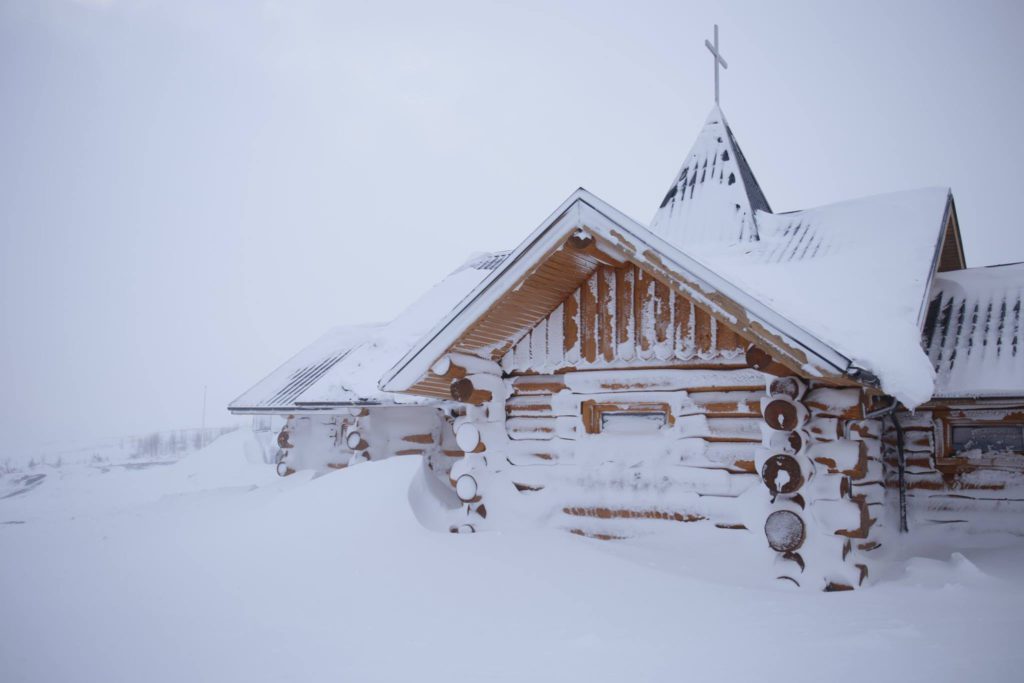Bishop David Tencer has been a missionary in Iceland, where the Atlantic meets the Arctic, for over two decades. Since 2015, the Slovakian Capuchin, with his wide smile, has been responsible for the northernmost diocese in Europe. During a visit to the headquarters of Aid to the Church in Need (ACN), he showed that his sense of humour is a match for the challenges of his mission.
The Diocese of Reykjavik was created in 1968 to serve a mere 1,000 Catholics in a territory the size of South Korea. Today that number has swelled to 15,500, according to official numbers, though the bishop believes the real community could be closer to 50,000.
A migrant Church
Most of the faithful in Iceland hail from Poland, Lithuania, the Philippines and Latin America. Understanding Icelandic, a difficult and age-old language, is only one of the challenges faced by a community where Mass is celebrated in five different languages on any given Sunday: Icelandic, Polish, English, Spanish and Lithuanian. “Our common language is faith. We believe the same thing. The Church is our mother,” Bishop David Tencer explains. “Many people come here to work, because you can earn good money, but what about their faith? That is where we have to be particularly attentive. The liturgy varies considerably from country to country, but the Faith is the same. This is what unites us.”
“In 2023, we had 150 baptisms, 200 confirmations and only 14 funerals. This shows that our Church is the most dynamic in Europe,” he explains, with a dose of healthy pride, though adding that “none of this is our merit, God sends these people to us”. This is the Church of Iceland, a Church born from immigration, forming a community that is, above all, a cultural mosaic.
A character-forming climate
The pastoral challenge is immense: 18 priests and a handful of religious sisters cater to a country whose roads can be difficult to travel for months, due to the difficult winter climate. This is why ACN has been supporting, and continues to support, the diocese with safe and sturdy vehicles so that the priest and the religious can reach distant communities and survive during the harsher months.
Being versed in theology is not enough to serve here, you need to know how to drive through storms, plan trips to villages that are hundreds of kilometres apart, and even when to stay indoors because of the strong winds from the Arctic, the snow and the driving rain which take their toll on apostolic zeal. “You can’t know if you are fit to be a missionary here before surviving two or three winters,” the bishop tells ACN. With the experience of someone who has learned that a good sense of humour can be a life-saver in this environment, he adds with a laugh: “I traded in my guitar for a ukelele, it takes up less space and I don’t need to carry it on my back, it fits right in my pocket, making it easier to transport during trips through the snow.” Besides having a good sense of humour, he knows that music is always good company.
People who come from the south soon find how important light – or lack thereof – can be to people’s spirits. During the winter there are only a few hours of sunlight, while in the summer there is hardly any darkness. The Slovakian bishop says that there are more expansive cultures than this one. “The Sicilians will hug you just because you are wearing a Capuchin habit, here they ask me if I am a Buddhist monk or a Muslim. I learned three songs in my first three hours in Albania. In my first three years here, I didn’t learn any.”
The isolation and harsh climate have shaped this island culture, making it more reserved and autonomous. “It isn’t better or worse, it’s just different. And it is necessary to survive,” he adds.
Between tourists and sheep
Iceland hosts around three million tourists every year, that’s almost eight times its resident population. This raises some difficulties for the locals, with shops often running out of supplies. It is also challenging for the Church, as a chapel built for 50 might suddenly be overrun when a 2,000-passenger cruise ship is in town. But for Bishop Tencer it is very clear that this is not where his priorities lie. “Of course we serve tourists, but my priority is those who share in this life. My flock is my people, those who live here.” Amongst the glaciers and volcanoes, Bishop Tencer carries out his mission under the motto: “Loving our glacial land.”
The deep secularism of Iceland also poses a difficulty for the Church’s presence, but being present is not enough, the Church has to spread the Word. “We need to be able to explain our faith,” the bishop says. The Cathedral of Reykjavik will mark its centenary in 2029, and realising how important the date is, ACN is helping to prepare the celebrations.


